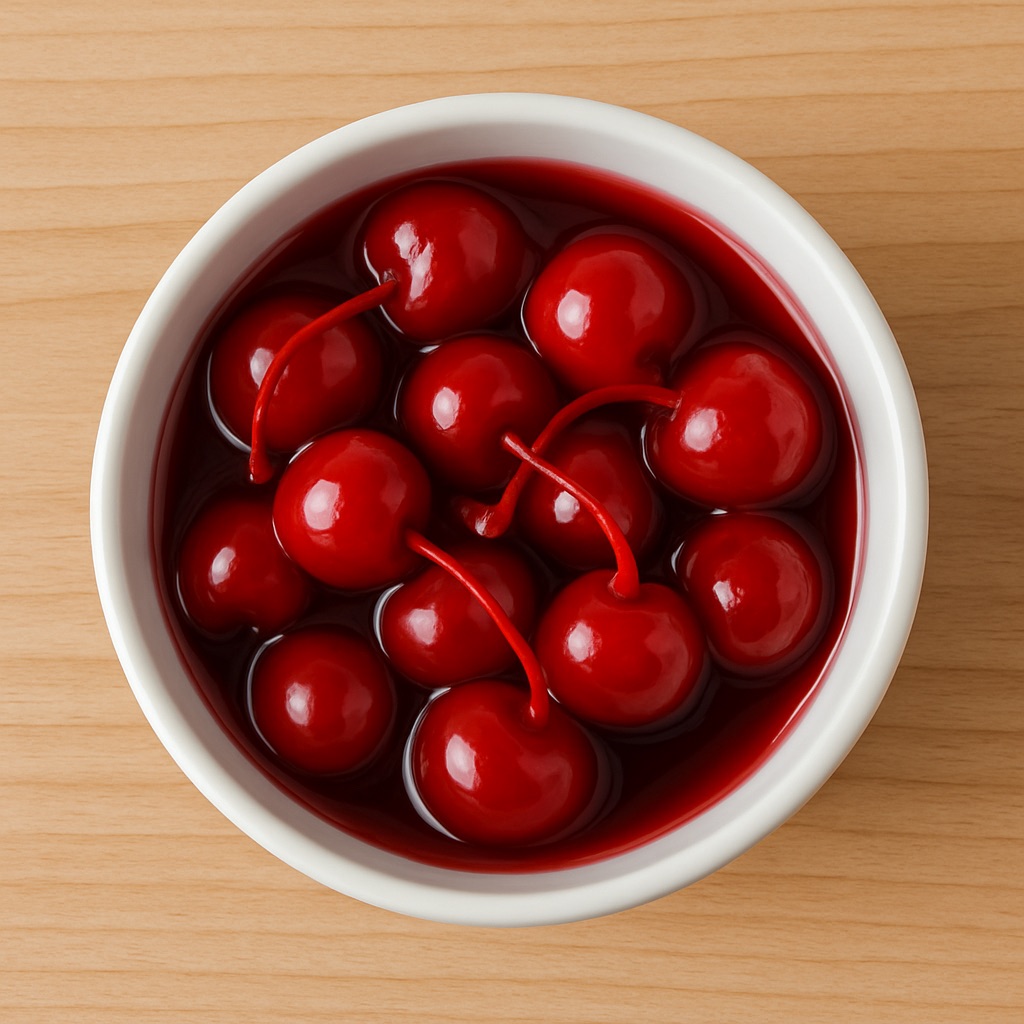Last updated on
Discover effective strategies to maintain a fresh-smelling pantry, enhancing your kitchen environment and preserving the quality of your food.
Keeping your pantry smelling fresh is a task that can be achieved with simple, everyday household items. By regularly cleaning and organizing your pantry, utilizing natural odor absorbers, and ensuring proper ventilation, you can maintain a fresh and pleasant aroma in your pantry.
This article will delve into the specifics of these methods, providing you with a comprehensive guide to banish unpleasant odors and keep your pantry smelling fresh all year round.
Stay tuned for detailed steps and tips to keep your pantry in top-notch condition.
Key takeaways:
- Regularly inspect pantry for signs of spoilage
- Clean and disinfect pantry to prevent mold and mildew
- Take immediate action to address insect infestations
- Safely remove rodents and seal entry points
- Use baking soda, vinegar, and essential oils for odor control
Identifying and Removing Spoiled Food

Avoiding spoiled food storage is fundamental for pantry hygiene and odor control. Be vigilant about storage durations and conditions. The following points are crucial in doing this effectively:
- Regular Checks: Inspect your pantry at least once a week. Look for signs of spoilage such as mold, discoloration, or foul smell.
- Expiration Dates: Heed to product expiration dates. Remember, an item well before its expiry can also spoil in adverse storage conditions.
- Seal Properly: Sealing packages appropriately helps contain potential odors.
- Food Segregation: Store different food types separately. Cross-contamination can fast-track spoilage and spread foul odors.
- Quick Clean: If you spot spoiled food, discard it immediately and clean the area with a vinegar solution to neutralize lingering smells.
Implement these steps to ensure a clean and odor-free pantry environment.
Understanding and Handling Mold and Mildew

Spotting mold and mildew is crucial, as both can cause a peculiar odor as well as health issues.
Know the signs: Often appearing as black, green or white specks, mold and mildew are easily identifiable.
Use a flashlight: A bright light is a great tool to catch any hidden colonies dwelling in corners or lesser visible parts of the pantry.
Make a habit of swift action: Dispose affected foods immediately. Not tomorrow, but right away.
Clean thoroughly: With a vinegar solution, scrub the area, ensuring not to miss any corners or cracks.
Dry completely: After cleaning, allow the area to dry out completely. Mold and mildew thrive in damp conditions, so moisture control is key.
Safety first: Always remember to wear gloves and a mask when handling mold and mildew directly as they can be harmful.
Taking a proactive approach to mold and mildew ensures not only a happier pantry, but also a healthier home.
Addressing Insect Infestations

Discovered beetles, weevils, or moth larvae in your pantry? This suggests a potent infestation and quick intervention is critical. Implement the following steps to manage the situation:
- Evacuate all contents from the pantry for a detailed inspection.
- Dispose of any food products showing signs of infestation immediately.
- Clean the entire pantry using a mixture of warm water and white vinegar. This practice eliminates insect-attracting odors.
- For severe cases, consider using insecticides labeled specifically for pantry pests. Ensure to follow the product instructions for safe use.
- After treatment and cleaning, place bay leaves on pantry shelves. Their scent discourages insects.
- Opt for glass or metal containers for storage, as these are less prone to insect intrusions compared to plastic or cardboard.
- Regularly check your pantry for early signs of infestation and act promptly if pests are discovered.
Spotting and Eliminating Rodent Infestations

Rodents present a significant challenge to maintaining a fresh-smelling pantry. They leave behind a distinct, musty odor and droppings which can contaminate food. If spotted, immediate steps should be taken:
1. Cleanup: Safely dispose of all infested goods and sanitize affected areas thoroughly with a disinfectant.
2. Traps: Utilize snap traps, sticky pads, or other humane options that best fit your needs.
3. Seal Entry Points: Inspect pantry for cracks, openings, or crevices where rodents may enter and seal them off using caulk or steel wool.
4. Professional Help: If infestation persists, a licensed pest control service should be considered.
Always remember that preventative measures like regular cleaning routines and storing food in rodent-proof containers can help deter rodents from your pantry.
Utilizing Baking Soda for Odor Control
Baking soda’s power comes from its ability to absorb moisture and odors due to its alkaline nature. It neutralizes rather than masks odors, making it ideal for long-term use.
Here’s how to apply it:
- Purchase regular baking soda: Avoid baking powder or other similar products.
- Clear out space: Make sure there’s room in your pantry for the box or bowl of baking soda.
- Open the baking soda: Pour it into a bowl, or if the box is perforated, pop it open.
- Placement is vital: Position the opened baking soda in the pantry, ideally at the back where it won’t be disturbed.
- Periodic Replacement: Change the baking soda every 30-60 days to maintain its effectiveness for odor absorption.
Remember, the key here is to leverage baking soda’s non-toxic, odor-neutralizing properties in an area where food is stored, and it’s considered safe. Please, if children or pets have access to the pantry, ensure they can’t reach the bowl or box of baking soda. For optimal results, combine this with other methods in our list.
Benefits of Vinegar in Odor Reduction
Vinegar, commonly found in most households, possesses natural deodorizing properties. This humble ingredient can be a powerful ally in your battle against unpleasant pantry smells:
- Acetic acid in vinegar neutralizes a broad range of odors on contact.
- Vinegar’s antibacterial properties fight against odor-causing bacteria.
- A bowl of white vinegar left in pantry overnight absorbs stubborn smells.
- Regular cleaning of pantry surfaces with a vinegar solution can maintain a smell-free environment.
- Combining vinegar with baking soda creates a fizzy reaction that can clear out drain odors.
Incorporating vinegar into your routine can act as a preventive measure against unwelcome aromas, ensuring your pantry stays fresh and appealing.
Incorporating Essential Oils for Freshness
Essential oils, thanks to their unique natural compounds, provide powerful fresh scents. Diluting a few drops of your preferred essential oil into water creates an effective odor-fighting solution.
1. Lemon, Lavender, and Peppermint: These oils not only combat odors but also leave a refreshing fragrance.
2. Application: Simply spray the solution lightly around the pantry area or on a subtle pantry element like a cotton ball.
3. Safety Measures: Be mindful of quantities. Essential oils are potent and can cause adverse reactions if too much is used.
4. Preservation: Keep any leftover solution in a dark glass spray bottle, out of direct sunlight to maintain potency.
With the correct usage, essential oils can turn your pantry from musty to marvelous!
Using Acidic Fruits Like Lemons for Freshness
Utilizing both the flesh and the peels, lemons possess natural deodorizing properties that cleanse the air. Here are the steps on how to do this:
- 1. Slice a lemon in half.
- 2. Scoop out the inside and only leave the peel.
- 3. Place a small amount of baking soda inside the hollowed-out peel.
- 4. Set the DIY air freshener on a small dish to avoid leakage and put it on a pantry shelf.
This technique capitalizes on the sharp, fresh scent of lemons to neutralize odors. The added baking soda effectively absorbs any lingering smells. Remember to replace your DIY lemon air freshener periodically to ensure a fresh and pleasant pantry aroma.
Maintaining Proper Ventilation in the Pantry
Ensure ventilation grids or perforations are unblocked. Dust or debris can hinder the circulation needed to keep the air within the pantry fresh.
Increase airflow. Leave the pantry door open for an hour or two every week to effectively exchange air.
Consider installing a small fan to keep the air moving and prevent stagnation, particularly if the pantry is large or prone to dampness.
Adjust pantry shelves, if needed. Spacious layouts maximize airflow around stored goods, reducing the risk of moisture and resulting odors.
Inspect food containers. Cracked or poorly sealed containers can leak odors, ensuring they are sealed helps in maintaining freshness.
Use breathable containers especially for fresh produce. This reduces humidity levels from trapped condensation, minimizing the risk of mold and resulting odors.
Regularly check humidity levels. Pantries should ideally be kept between 50-70% relative humidity, and a hygrometer can help you monitor this.
How Charcoal Can Absorb Odors
Charcoal, specifically activated charcoal, serves as a powerful odor absorber. Its porous texture and negative electric charge work in unison, trapping undesirable smells.
To leverage charcoal’s absorbing capacities:
- Procure unscented activated charcoal, available in most home improvement stores or online.
- Determine the quantity needed according to pantry size. A small bag usually suffices for average household pantries.
- Place the charcoal bag unopened on a pantry shelf.
- Monitor effectiveness periodically and replace every 2-3 months.
- For optimal results, combine this method with other odor remediation strategies.
Remember, activated charcoal is non-toxic and safe around food items, making it an ideal choice for pantry odor control.
Making Use of Simmered Spices Mix
Creating a pan of simmered spices on the stove releases a natural aroma that wafts through the home, effectively removing any lingering closet smells. Follow these steps:
- 1. Select heavy, earthy spices such as cloves, star anise, or cinnamon sticks.
- 2. Fill a pot halfway with water, then add in your spices.
- 3. Set the stove to a very low heat and let it simmer throughout the day.
Remember to add more water if necessary. The spices will infuse the air with a homely, inviting scent, and will reach even the corners of your pantry. This method, combined with the previous steps in this article, can help maintain a fresh and clean pantry. Remember, safety should be your priority – never leave simmering spices unattended for an extended period.
FAQ
How long will a bowl of vinegar absorb odors?
A bowl of vinegar can absorb odors for several hours when left out in the kitchen.
What absorbs odors?
Odor eliminators, such as coffee grounds, tea, vinegar, oats, and baking soda, can effectively absorb unpleasant smells when left in a bowl in a room.
What makes cabinets smell musty?
Musty smells in cabinets typically originate from moisture trapped in the wood grain, leading to the growth of bacteria, mildew, or mold.
Can you put baking soda in the pantry?
Yes, baking soda can be stored in the pantry, but it should be kept in a cool, dry place away from strong-smelling items, direct sunlight, and heat sources.
How can baking soda be utilized to eliminate pantry odors?
Baking soda can be utilized to eliminate pantry odors by placing an open box inside the pantry which works by absorbing the unpleasant smells.
What types of natural deodorizers can be used in conjunction with vinegar for a fresher pantry?
Natural deodorizers like baking soda, lemon, or coffee grounds can be used alongside vinegar to freshen up a pantry.
How often should you clean your pantry to prevent musty smells?
To prevent musty smells, clean your pantry at a minimum of once every two months.
Recap:




